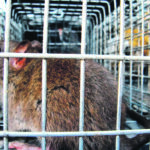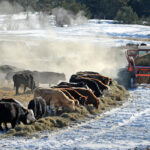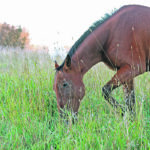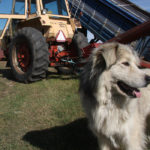Cannabis became legal for recreational human use in October of 2018. At that time, there was much concern in the veterinary community about the impact of legalization on pet health. In particular, it was assumed that dogs may be at increased risk of cannabis intoxication. With legalization, it was feared, there would be more cannabis […] Read more
Stories by Jamie Rothenburger, DVM

Alberta needs to stay vigilant with its rat control efforts
Alberta’s roughly 70-year experiment with rat eradication is the envy of the world. And what the province has achieved is a remarkable feat. Alberta has prevented the establishment of breeding rat colonies through a strong commitment to keeping these rodent pests out. The Norway rat, known by its scientific name as Rattus norvegicus, is a […] Read more

Animal-related public health issues may gain support
An enduring lesson of the COVID-19 pandemic will be that public health issues need stable support. We need to take the long view, even when not much is happening. By now, we are all comfortable with some basic epidemiological and public health concepts such as the idea of asymptomatic carriers, infection control practices and the […] Read more

Managing weight in ponies critical for optimum health
It is tempting to classify ponies as small horses and treat them the same. They are the same species, Equus ferus caballus, but the smallest equines in our care have some unique characteristics that require particular attention for optimum health. Ponies are especially good at using their groceries to put on weight, making obesity a […] Read more

Fat tissue discovered to be major source of hormones
There is growing scientific interest in the role of fat tissue in health and disease. That’s important for animal health when you consider that obesity is a frequent and growing problem among pets and horses. Once dismissed as relatively unimportant tissue with limited function, fat is now having a moment. For most of modern medical […] Read more

New study explores factors linked to horses’ ability to survive colic
A great Canadian horse study has just been published in the Canadian Veterinary Journal. This retrospective study used medical records of horses from 2000 to 2015 that were admitted to the Atlantic Veterinary College Veterinary Teaching Hospital for colic. Colic is a general term used to describe pain in the abdomen and is a common […] Read more

Tent caterpillars possibly linked to rare heart condition in horses
A new study from the University of Saskatchewan has identified a possible link between forest tent caterpillars and deaths in several horses. The case series of four horses was published in the July 2020 issue of the Canadian Veterinary Journal. All four horses were presented to the Western College of Veterinary Medicine’s Large Animal Clinic […] Read more

Dogs can be poisoned by common items found on farms
Common farm items can poison dogs, and to a lesser extent, cats. Cats tend to be more discriminant in their eating habits than dogs so are less often exposed. Antifreeze Antifreeze is one such farm item that can be particularly lethal to dogs that ingest it. The toxic ingredient in most types of antifreeze is […] Read more

Common household items can be dangerous for dogs
Everyday household items can be surprisingly toxic to dogs. And with their curious nature and indiscriminate eating habits, dogs have ample opportunity to eat the things they shouldn’t. Chocolate Chocolate is one such toxin. Dogs are most often exposed during holiday seasons when chocolate is abundant in homes, such as Christmas, Valentine’s Day and Easter. […] Read more

Veterinary ophthalmologists focus on animal eye health
Eyes may be the window to the soul, but they are also prone to their own set of unique diseases and can be a key organ involved in severe systemic illness. While general practice veterinarians have training and experience with treating common eye diseases, sometimes specialists are needed for complex cases. Within the veterinary community, […] Read more




